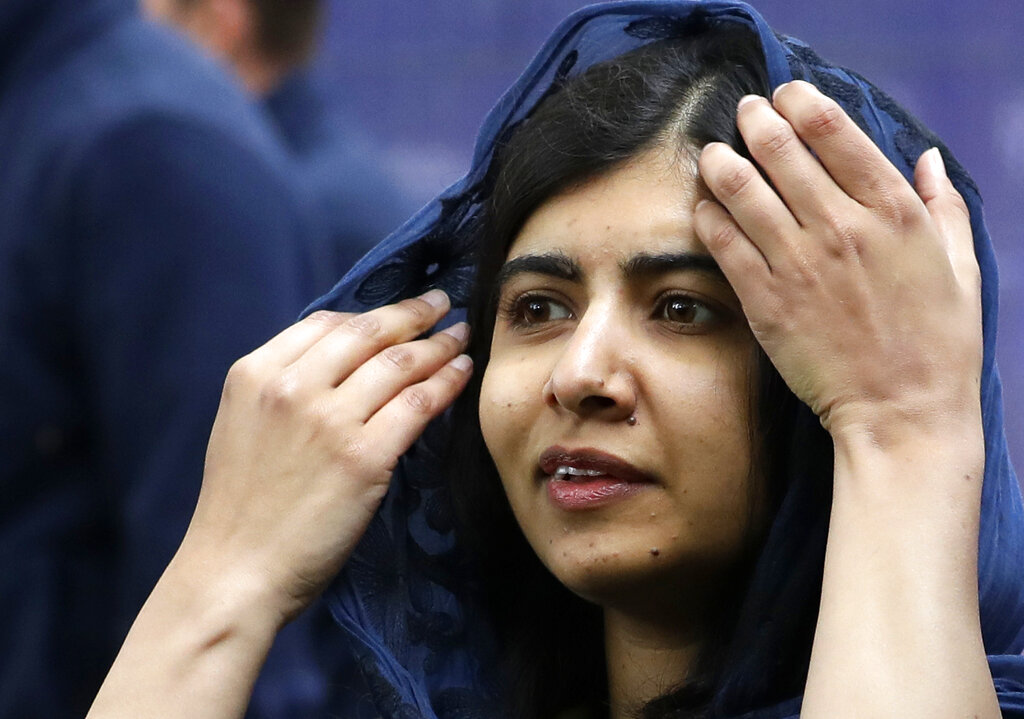Sir — Last week, Malala Yousafzai shared the news that she has earned her undergraduate degree from Oxford University. For those who remember the 2012 attack on Yousafzai — she had been shot in the head by the Taliban for campaigning for girls’ education — this is a moment that had, for a brief while, seemed impossible. Thus, her completion of the degree is a matter of jubilation for the global community. Yousafzai, who has continued to work tirelessly for the rights of the marginalized, has only begun her journey. One hopes that some day she shatters the ultimate glass ceiling and fulfils her dream of becoming the prime minister of Pakistan.
Srestha Dasgupta,
Calcutta
Shackled truth
Sir — As long as the government continues to regulate the media, the public will fail to trust the press (“Freedom in chains”, June 20). In fact, if the government only allows news reports that are in its favour, the exercise will turn out to be counterproductive. A democratic system calls for the right to free and fair expression for all, including opposing views in the media; the latter, in turn, ensures that the rights of citizens are not encroached upon by those in power.
It is, thus, unfortunate that, in New India, this freedom has been denied to the citizens of Kashmir for close to a year since the abrogation of parts of Article 370. The new media policy announced by the Jammu and Kashmir government earlier this month, rather than promoting the freedom and independence of the media, strives to curb it in the Union territory. It is now up to government officials to decide what is “fake”, “unethical” or “anti-national” news and take legal action against journalists or organizations if they are found to be in ‘violation’ of the new rules.
Soon enough, the media in other states, including West Bengal, would be forced to comply with the government’s directives or suffer the consequences. Reporters and editors already face harassment by the police and the administration and one can safely assume that this will only get worse. Our country no longer provides suitable conditions for the press to survive and thrive in freedom.
Shovanlal Chakraborty,
Calcutta
Sir — The media face the brunt of the government’s ire precisely because the latter is aware of the importance of the press. As a result, upstanding journalists who speak fearlessly against injustice are constantly harassed and punished. The media houses which do not comply are pushed to a corner.
It seems that the mindset of the politicians in contemporary India is no different from the colonial rulers who had issued an ordinance to place curbs on press freedom in British India. In fact, certain draconian laws have not only been retained in independent India but have been extensively used to choke voices of dissent. It is worrying that at a time when millions of people continue to suffer from the lack of basic amenities, the government chooses to focus on curtailing the freedom of the institution that gives a voice to the helpless.
Sanjit Ghatak,
South 24 Parganas
Sir — The excellent article by Ramachandra Guha sheds light on an issue of much concern in contemporary India. The retention of British-era laws and their stringent implementation to stifle dissent suggest that although we have achieved independence from our erstwhile colonizers, true freedom is yet to be attained. In several instances, people have been severely punished for voicing their dissatisfaction with the policies and actions of the government.
At a moment like this, a particular incident comes to mind. The former prime minister of India, Jawaharlal Nehru, who did not shy away from criticism, had reportedly told the renowned political cartoonist, Keshav Shankar Pillai, not to “spare” him. In sharp contrast, most government officials these days not only abhor criticism but punish those who dare to point out their follies.
Guha has rightly quoted Ram Mohun Roy whose writings are as relevant today as they were in the 19th century. It bears testimony to the negligible progress the country has made vis-à-vis the freedom of the press.
Kajal Chatterjee,
Calcutta
Be cautious
Sir — The recent claim made by the yoga guru, Ramdev, that his company, Patanjali, has launched the first ayurvedic medicine to treat Covid-19 must be regarded with scepticism. The tablet itself, Coronil, should be subjected to independent testing to ascertain its safety and efficacy.
Patanjali’s ‘treatment’ comes at a time when scientists from around the world are racing against time to find a cure for the disease. Thus, the assertion that the medicine is not just an immunity booster but a cure has raised questions.
The development of a vaccine or a drug requires the collective effort of virologists, epidemiologists, immunologists and pharmacologists. At best, Coronil is a concoction of medicinal herbs that have so far not proven to be effective against the novel coronavirus. The ministry of ayurveda, yoga and naturopathy, unani, siddha and homoeopathy has, reportedly, sought details about the medicine and has asked Patanjali to stop advertising its efficacy. The entire kit — a pack of three medicines — is priced at Rs 600. One wonders if this is simply an attempt to cash in on a public health crisis.
G. David Milton,
Maruthancode, Tamil Nadu











